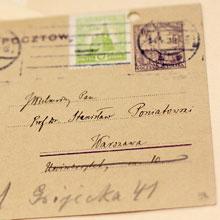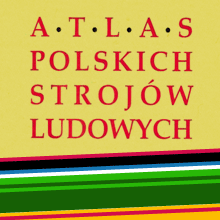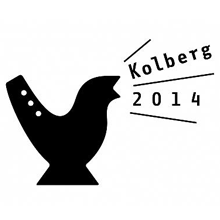LOCAL POLITICAL DRAMA. INTERACTIONS BETWEEN POLITICAL ACTORS IN A SMALL TOWN IN POLAND
(Summary)
„Local political drama”, as the title suggests, focuses on the social interactions of the local politics. The text is based on the author’s fi eldwork carried out in the northeast of Poland from 2005 till the end of 2006. That was the time of quick political and social changes due to the challenges related with European integration. In this article the author presents problems connected with his research on the symbolic elites, which is delicate and poses numerous ethical questions. The method applied combines post-structural (V. Turner) and interactionist (E. Goffman) interpretations. The author discusses locally important political and social issues and analyses the political dramas, which are a type of social dramas in the described community. In the very local context of a small community even the most trivial issues are becoming the dramas lived by the community for weeks. The concept of representative democracy and pluralism of opinions is hard to reach in the local context, because the repetitive character of the confl icts as well as similar biographies of the members of local elites make a change very diffi cult. Nevertheless, some changes were observed during the period of fi eldwork and this article aims to show the reasons and the consequences of these changes.
Key words:
politics, social drama, political drama, social scene, social actor, symbolic elites
Kamila Baraniecka
A PASSION PLAY FROM THE INSIDE. JOKES IN THE STORIES ABOUT EASTER PLAYS
(Summary)
The article describes the relation between humour and religion, using Polish Passion plays as an illustration. The author focuses on jokes present in narrations about Easter plays. Although humour is not part of Easter play scenarios, it is a permanent feature of narrations about Passion plays. However, jokes are not about things divine, the holy story depicted in the play, but about the imperfections of people or animals and accidents happening during the plays.
An anecdote is a kind of a bridge linking the unattainable divine ideal with human competencies. It bridges the gap between perfection and imperfection; it helps to tackle the diffi cult task of staging an evangelical story. Laughter helps both the actors and play organisers to carry the burden. At the same time, it is a way to ease the tension, which is present during the active involvement in the Passion plays. Amusing narrations about Passion plays also show the complex attitudes of people to such plays. It is mainly people involved in the preparations of the plays who tell anecdotes. While joking about the Passion play, they express their perception of the gap between the divine ideal and the human performance.
Key words:
religious plays, the Passion, situational humour
Anna Drożdż
MAGIC ACTIVITIES, PREDICTIONS AND PROGNOSTICS DURING THE EARLY STAGES OF A FOLK WEDDING (BASED ON THE MATERIALS OF THE POLISH ETHNOGRAPHIC ATLAS)
(Streszczenie)
The article deals with magical activities observed in preparations for a folk wedding in Poland. The peak of magical acts was connected with the belief that a young couple was in a critical moment — the interim, which was dangerous for them because of its liminality. On the other hand, if proper patterns of behaviour were followed, it guaranteed happiness of the bride and the groom. According to the common belief, it was possible to predict the future of the couple. That was the source of a great variety of fortune telling and predictions. The article presents selected magical acts accompanying the following stages of the wedding: inviting for a celebration, baking the „korowaj” cake, the hen evening and predictions before the marriage ceremony. It emphasises many activities of protective and prognostic nature, during invitation for a wedding and baking the wedding cake.
The examples presented in the article come from fi eldwork conducted by research workers of the Polish Ethnographic Atlas in the second half of the 20th century (mainly in the 1970s and 1980s) in selected villages in the area of Poland.
Key words:
magic activities, rites of passage, wedding ceremony, invitation to a wedding, ritual bread, hen evening, Polish Ethnographic Atlas
Agnieszka Pieńczak
THE WAYS OF RECOGNISING SUPPOSED WITCHES (IN THE LIGHT OF THE STUDY OF THE POLISH ETHNOGRAPHIC ATLAS)
(Summary)
Descriptions of different forms of traditional witchcraft in Poland can be found in the earliest ethnographic works. However, they are fragmentary and often presented as part of a broader discussion of beliefs, magic and fortune telling.
The article is based on unpublished materials of the Polish Ethnographic Atlas, collected in the 1980s of the 20th c. One of the main assumptions of the Atlas was to show the cultural diversity of different elements of traditional culture.
Belief in witchcraft became very strong particularly in the 16th and 17th centuries, mainly because of the bad economic situation. Even as late as the second half of the 20th c. in rural communities some people were suspected of witch practices. The article discusses selected aspects of traditional witchcraft, in particular ways of recognising witches (on the basis of the external appearance, characteristic objects, profanation of religious practices etc.).
Some of the beliefs analysed in the article are still present, particularly in eastern Poland. However, the material gathered in the Atlas is rather fragmentary.
Key words:
Polish Ethnographic Atlas, spatial description of cultural phenomena, folk beliefs, traditional witchcraft, ways of recognising a witch



